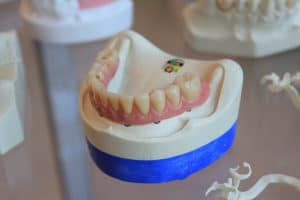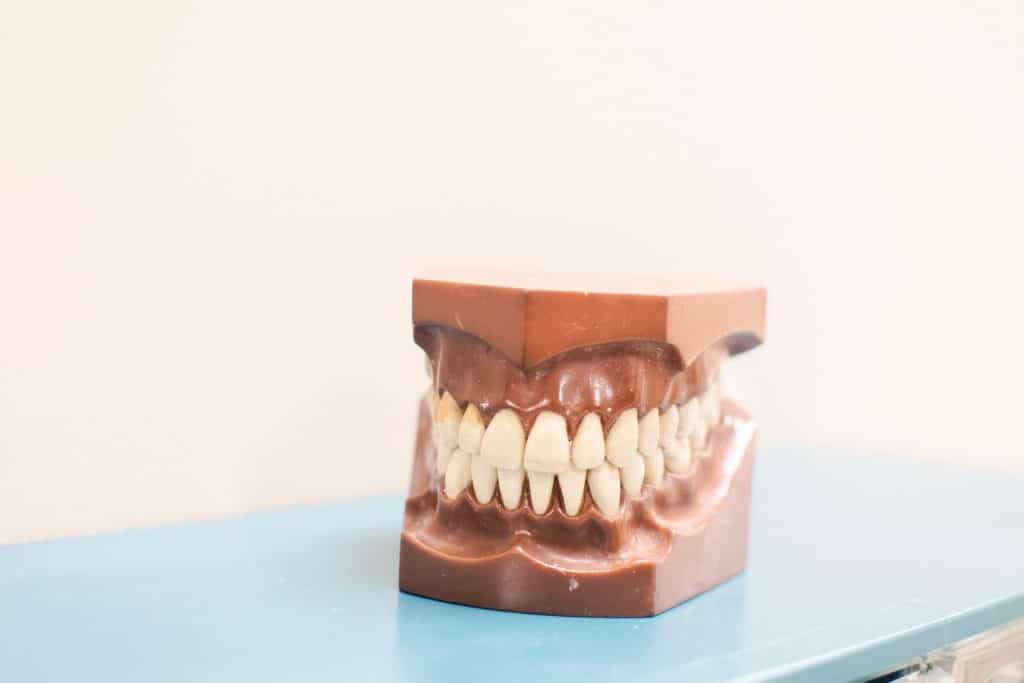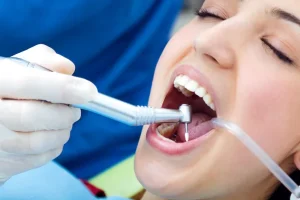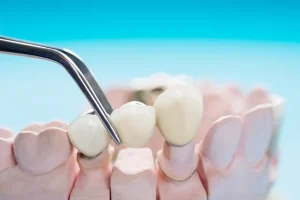Gum disease is caused by infection of the gums, which occurs due to the accumulation of plaque on the teeth and around the gum line. When gum disease is left untreated, it can progress to a more severe form of the disease known as periodontitis. Periodontitis is a serious health concern and should not be ignored, as it can lead to bone loss in your jaws and eventually, loss of the tooth.

Table of Contents
Causes of Periodontitis
Periodontitis is an advanced form of gum disease. It is primarily caused due to inadequate cleaning of plaque from the teeth and along the gum line. Plaque is made up of food debris and bacteria, and if it is not removed regularly, the accumulation of bacteria can lead to infection of the gum tissue.
Your body’s natural defense mechanism against this bacterial growth is inflammation of the gums. The inflamed gums tend to detach from the tooth roots and form pockets between the gum and root where even more plaque and bacteria accumulate. These pockets are hard to clean through routine brushing and flossing. The bacterial growth in the pockets releases toxins that can destroy all supportive tissues around the tooth, eventually leading to tooth loss.
Apart from bad oral hygiene, certain predisposing factors put you at a greater risk of developing periodontitis. These include:
Hormonal changes in women, such as during puberty and pregnancy.
Health issues like diabetes, obesity, HIV, heart disease, leukemia, etc.
Medication that reduces salivary flow in the mouth.
Smoking
Family history of periodontitis.
Nutritional deficiencies, especially Vitamin C.
Stages in Periodontitis
The earliest sign of gum disease is bleeding and inflamed gums. At this stage, it is known as gingivitis. Symptoms like bleeding are commonly seen during brushing or flossing, or while biting down on hard foods. At this stage, the symptoms of gingivitis are mild and can be reversed through maintaining good oral hygiene.
If the symptoms of gingivitis are ignored, it can progress to the more serious form known as periodontal disease. This stage is characterized by deep pockets and the gums pulling away from the teeth. Your teeth might appear longer due to the receding gums and there might be increased bleeding as well.
As the disease progresses, there is increased destruction of supportive tissues around the tooth. Gradual bone loss can cause the tooth to become loose in its socket, eventually leading to tooth loss.
Symptoms of Periodontitis
Bleeding gums, which may increase while eating, brushing, or flossing your teeth.
Swollen, tender, and inflamed gums.
Teeth that appear longer. This is due to the gums pulling away from the teeth.
Bad breath.
Unpleasant taste in the mouth.
Painful teeth and gums, mostly while eating.
Loose teeth.
Diagnosis of Periodontitis
Early symptoms of periodontitis include tender and bleeding gums, which should be a sign for you to go see a dentist. The dentist will examine your mouth to diagnose the extent of gum disease and they may use a dental probe to measure the depth of your pockets. Dental X-rays are often advised in cases of advanced periodontitis to examine the extent of bone loss around the teeth.
Treatment of Periodontitis
The primary objective of treating periodontitis is to eliminate the plaque and calculus (plaque that has hardened over time) from around the teeth and gums. This gives the gums, bone, and other supporting structures around the tooth a chance to heal and regenerate.
Oral Prophylaxis
Your dentist will schedule multiple rounds of professional dental cleanings, also known as an oral prophylaxis, to reduce plaque build-up and bacterial growth from around your gums. A dental scaler is used to scrape off plaque and calculus from the teeth and beneath the gum line. Root planing is done to smoothen out the root surfaces of the teeth, which prevents it from accumulating plaque in the future.
Deep gingival pockets require deep cleaning measures to eliminate plaque and to allow reattachment of the gums to the teeth. Your dentist may also polish your teeth to remove any remnants of plaque and calculus that may have been left behind.
Surgery
Advanced periodontitis is often associated with severe loss of gum tissue around the teeth. Scaling and root planing may not be sufficient to treat such cases and they may need surgical intervention. There are two main types of surgeries used in the treatment of periodontitis –
Flap Surgery: A small flap of gum tissue is raised from around the teeth in areas of deep pockets. All plaque and calculus are cleaned from the pockets and the roots of teeth. The flap of gum is stitched back into place around the teeth, which reduces the pocket size and makes it easier to keep the area clean through brushing and flossing.
Graft Surgery: A graft surgery may be needed in cases where there is substantial destruction of bone and tissue. A natural or synthetic graft is placed in the region of tissue loss to allow the bone to regenerate.
Medication
Most dentists prescribe oral antibiotics to be taken as part of your periodontitis treatment. Alternatively, they may place an antibiotic chip in the tissue pockets after the oral prophylaxis is complete.
Home Care
Apart from professional intervention, maintaining good oral hygiene through home care is an important part of your periodontitis treatment. Essential plaque control measures include brushing at least twice a day and flossing regularly. Using an antibacterial mouthwash after brushing your teeth can help you clean out plaque from the hard-to-reach spots in your mouth. Your dentist will schedule you for an assessment every few weeks to monitor the progress of your treatment. It is also recommended to visit your dentist for regular check-ups even after your treatment is complete.
Periodontitis can become a debilitating condition if left unchecked and requires immediate professional attention. Neglecting periodontal disease can pave the way to health conditions like heart disease, which necessitates the need to take periodontitis seriously. At Anoka Dental, we strive to offer you the very best in periodontal care. Book an appointment with us to know more about keeping your teeth and gums healthy.




